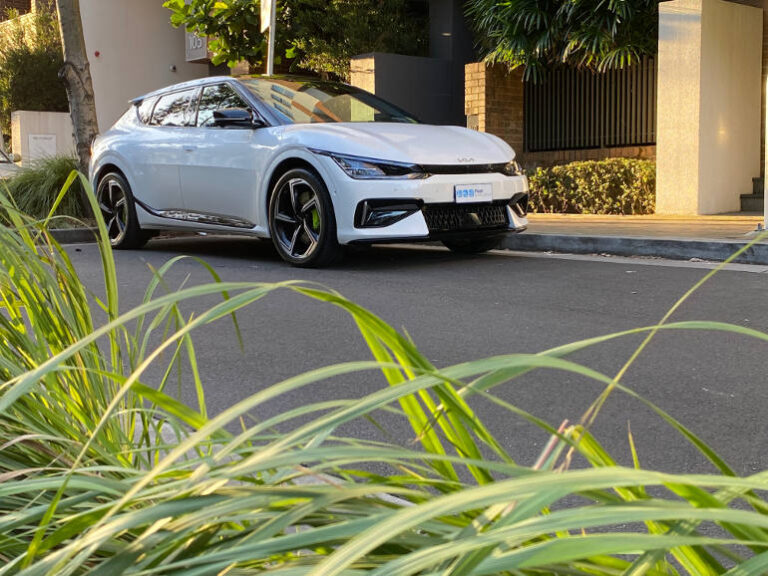New car research site The Beep has shared data with Fleet Auto News that indicates new EV prices have continued to drop across 2024, but which regions and manufacturers are responsible for the shift? The answers may surprise you…
“This month we have taken a closer look at electric vehicle price changes across the year, and it’s fair to say the results are surprising, ” said The Beep Co-founder, Robert Leigh.
“We always suspected EV prices would move closer to parity with hybrid models, but it’s happening quickly and a lot of that comes down to dramatic price cuts we have seen in recent months.”
The Beep data tells a fascinating story, with niche and Chinese brands most significantly reducing prices while established automakers hold strong – with many established marques making it clear they do not intend to enter the apparent price war taking place.
Chinese-built EVs dropped in price by 1.4 percent, or $1,263, on average between January and October this year, which on the whole is not a significant shift. However, digging deeper there were sizeable price cuts to certain models.
The popular BYD Atto 3 dropped from $50,853 to $47,261, a 7.1 percent price reduction, and the GWM Haval was reduced from $49,617 to $36,990 across 2024 – representing a massive 25.4 percent cut. However, it’s the MG4 Excite 51 that saw the most dramatic shift across the Chinese-made EV market, reduced from $42,089 to $30,990 – down 26.4 percent.
European brand pricing was far more stable across 2024, with average EV pricing for German marques like Audi, BMW, Mercedes Benz and others down 5.4 percent across 2024. Porsche prices dropped by a meagre 2.1 percent, while Mercedes-Benz saw a 6.3 percent drop, and BMW prices dropped by a significant 9.0 percent.
Japanese EV prices are down 9.2 percent year-to-date, with the majority of the shift coming from Subaru after it cut its initial Solterra pricing leading to an 8.8 percent drop in its average EV pricing across the two model grades it offers for its first EV.
South Korea has maintained average pricing of its EV models, made up of options from Genesis, Hyunai and Kia, with only a 0.9 percent reduction so far in 2024. Interestingly, Hyundai pricing is up by 4.3 percent, as expensive models like the Ioniq 5 N push the average price up.
One brand that has held strong with a price reduction of only 0.3 percent, or $313, across its range is Kia with the average price of its EV models dropping from $98,498 to $98,184 between January and October this year. This is expected to change with the incoming EV5, priced from $57,770 driveway.
Talking with Fleet Auto News back in June, Kia Australia General Manager of Fleet, Chris Forbes, said the local arm will not be buying into the price slashing tactics of other manufacturers.
“We’ve been very consistent with pricing, so we have maintained pricing on our EV’s,” he said.
“While some may say we’ve been outpriced by a number of our competitors, we’re still doing very well and part of that is that we’ve got a very good base of customers that believe in our product.
“And while residual values for electric vehicles aren’t great at the moment, ours are probably trending better than some others.
“We’ve gone in with a strategy to build a solid base of customers, both fleet and retail, and work on that as opposed to trying to move metal by dropping prices.”
The most significant price reduction of any brand or model was Peugeot, with a dramatic price cut to its 2008 E SUV after it was reduced from $65,455 to $39,990 – a massive 38.9 percent drop.
“When you look at the numbers, it’s clear that the established brands are maintaining prices and this will likely have a positive impact on residual values,” said Mr Leigh.
“However, as niche or ‘new’ brands continue to cut pricing in what appears to be a race to the bottom, the EV market is proving to be increasingly volatile and it is unclear when it will stabilise.
“Obviously consumers want cheaper EVs, but fleet customers want stability and the used market will bear the brunt of these price cuts.”
The Beep offers free and easily accessible data that allows Australians to track market trends and compare more than 1,000 new car models. Site visitors can compare specifications across models, looking at engine and drivetrain details, performance metrics, fuel consumption figures, electric range capabilities, ANCAP safety ratings and of course pricing data.
Visit thebeep.com.au to filter by body style, price range or fuel type to track pricing data like drive-away price, high and low points and fluctuations, across 40 brands and more than 1000 models.






